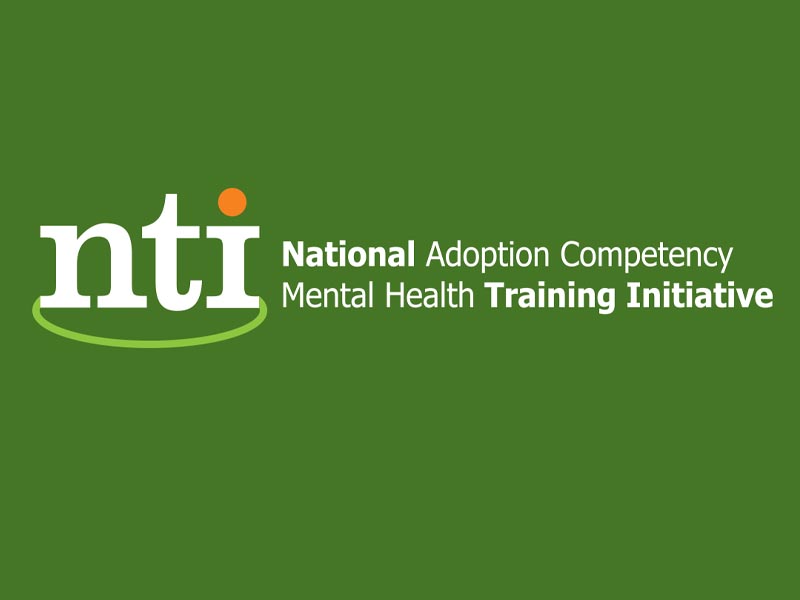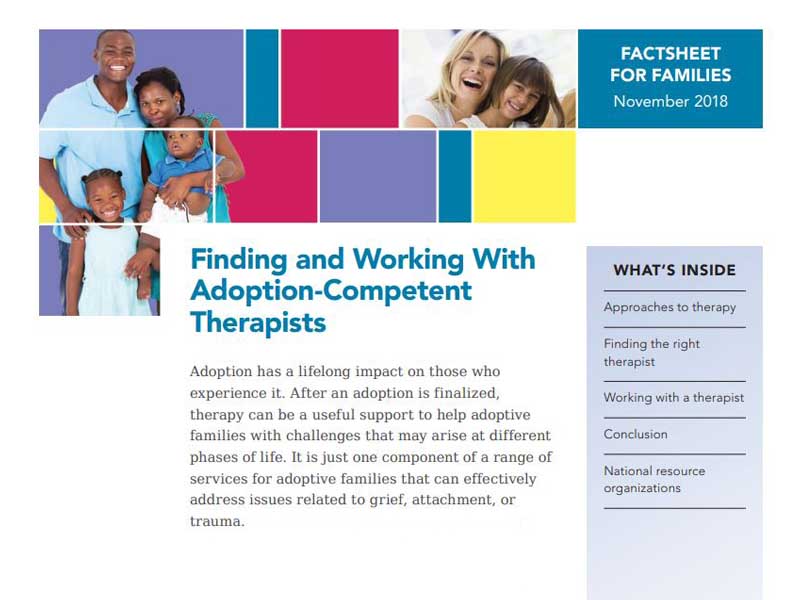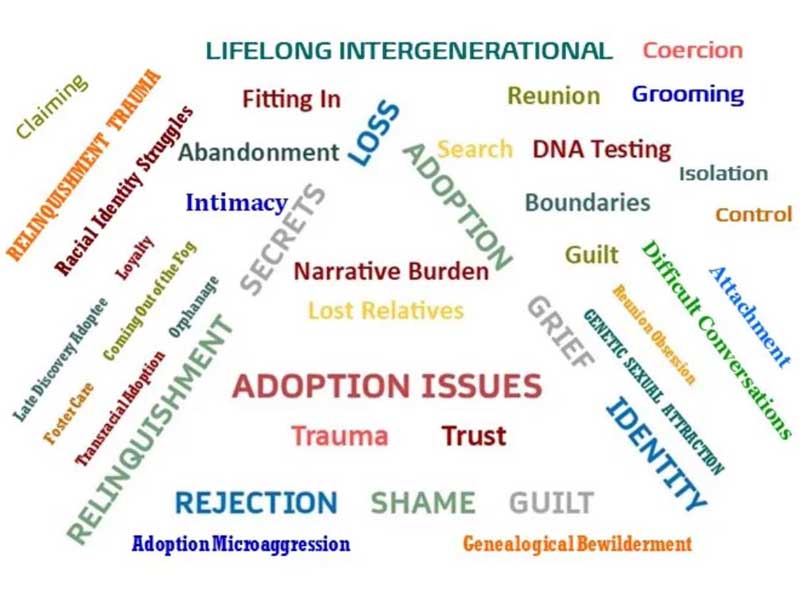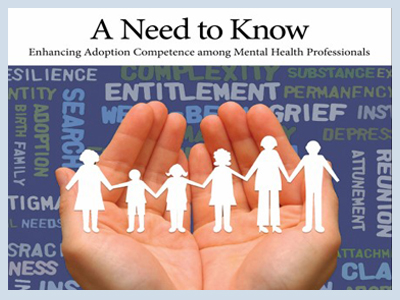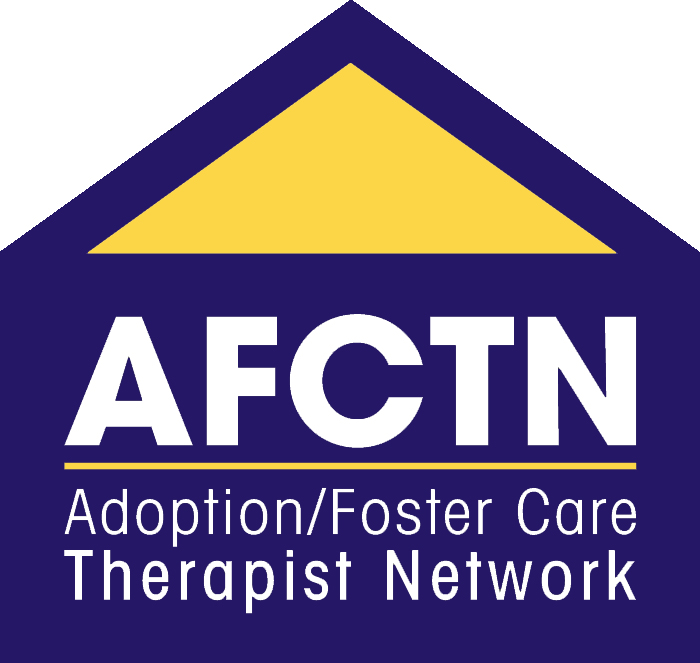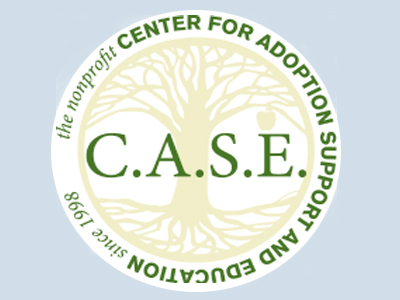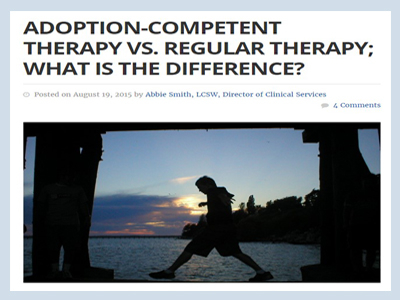Finding Competent Help
An adoption-competent professional understands the unique challenges inherent in adoption and possesses the clinical skills to provide quality mental health services.
Adoption is beyond complex – the language, the losses, the expectations, the norms, the family dynamics, the feelings…the list is long, in depth, and specific. When you’re searching for an adoption-competent mental health professional for your child, you may assume that adoption is well-understood within the mental health field, and that any licensed professional is able to provide your child with beneficial services.
Unfortunately, adoptive parents and family members consistently report that they are unable to find mental health professionals who understand the complexities of adoption. Some families may seek the help of as many as ten different therapists before finding one who understands the role that adoption plays in their lives. Most mental health professionals and allied professionals simply lack the training to meet the diverse and complex clinical needs of adoptive families.
Therapists should be familiar with the unique challenges that adoptive families confront. Those who have experience and a working understanding of attachment, trauma, and brain development, as well as knowledge of the core issues associated with adoption, are best suited to help families identify issues and plan effective treatment strategies.
An adoption competent mental health professional has:
- The requisite professional education and professional licensure;
- A family-based, strengths-based, and evidence-based approach to working with adoptive families and birth families;
- A developmental and systemic approach to understanding and working with adoptive and birth families;
- Knowledge, clinical skills and experience in treating individuals with a history of abuse, neglect and/or trauma; and
- Knowledge, skills and experience in working with adoptive families and birth families.
- An adoption competent mental health professional understands the nature of adoption as a form of family formation and the different types of adoption; the clinical issues that are associated with separation and loss and attachment; the common developmental challenges in the experience of adoption; and the characteristics and skills that make adoptive families successful.
- An Adoption competent mental health professional is culturally competent with respect to the racial and cultural heritage of children and families.
- An adoption competent mental health professional is skilled in using a range of therapies to effectively engage birth, kinship, and adoptive families toward the mutual goal of helping individuals to heal, empowering parents to assume parental entitlement and authority, and assisting adoptive families to strengthen or develop and practice parenting skills that support healthy family relationships.
- An adoption competent mental health professional is skilled in advocating with other service systems on behalf of birth and adoptive families.
Find Competent Help
Working With an Adoption Competent Therapist
If the child is the identified client in therapy, the family’s involvement and support for the therapy is critical to a positive outcome for him or her. An adoption-competent therapist will value the participation of adoptive parents. Traditional family therapists who are unfamiliar with adoption issues may view the child’s problems as a manifestation of overall family dysfunction. They may not take into account the child’s earlier experiences in other care settings and may view adoptive parents more as a part of the problem than the solution. Adoption competent therapists know that the adoptive parents will be empowered by including them in the therapeutic process and that no intervention should threaten the parent-child relationship.
Parents’ commitment to the therapy may also contribute to the success of the therapeutic process. For instance, parents are obligated to keep scheduled appointments. They should refrain from using therapy sessions as punishment for a child’s misbehavior. Family members must communicate regularly with the therapist and ensure that the therapist has regular feedback about conditions at home. The success of therapy depends heavily on open and trusting communication.
Parents may want to request an evaluation meeting with the therapist 6 to 8 weeks after treatment begins and regular updates thereafter. Evaluation meetings will help all parties evaluate the progress of treatment and offer the opportunity to discuss the following:
- Satisfaction with the working relationship between the therapist and family members
- Progress toward mutually agreed-on goals for treatment approaches and desired outcomes
- Progress on problems that first prompted the request for treatment
- The therapist’s tentative diagnosis (usually necessary for insurance reimbursement)
- The therapist’s evaluation of whether therapy can improve the situation that prompted treatment
Even when the match with a therapist appears to be perfect, the relationship with the family or the results may not be satisfactory. Parents must be willing to change therapists when the therapy does not appear to be progressing appropriately. Parents are the experts about their own children and are the ones who must decide what makes sense for their children. It is worthwhile to discuss a move with the therapist, but the parents are the ones responsible for arranging effective treatment.

